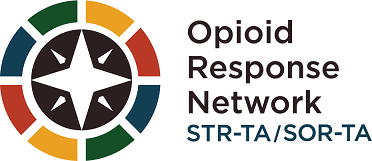
APA, in collaboration with AAAP and 22 national health care organizations, created the following virtual learning collaboratives that each highlight a topic focused on expanding medication for addiction treatment options for patients with substance use disorders (SUD). Each collaborative is specially curated to meet the unique needs of an affected community.
Details on the three, upcoming ECHO-style virtual learning collaboratives (VLCs) can be found below. Each VLC proceeds for a four-week duration, which focus on the implementation of evidence-based treatment for opioid use disorder (OUD). The VLC’s combine interactive learning, case-based sharing, and facilitation by national experts.
All participants will be required to attend a virtual forum at the end of the four-week VLC and participate in each of the weekly discussions and assignments. The following topics will be addressed:
- Adolescent
- Co-morbid stimulant abuse
- LGBT communities
- Rural communities
- Minority and under-represented communities
Upcoming Virtual Learning Collaborative
Using Injectable Buprenorphine for Opioid Use Disorder
- September 20, 2024
- 2:00 p.m. - 3:00 p.m. EDT
- Mark Duncan, M.D.
- 5 CME credits
This free 4-part virtual learning collaborative will explore the use of injectable extended-release forms of Buprenorphine for the treatment OUD, with an emphasis on Sublocade due to it being on the market longer. This practical series will explore the nuts and bolts of getting people started on extended-release injectable buprenorphine, clinical considerations around using it for maintenance treatment, and using it in unique clinical situations such as pain, pregnancy, and adolescents. By the end of the course, our goal is that you will develop a level of expertise to confidently offer these medications as another treatment option for your patients with OUD.
Virtual Learning Collaboratives Archive
Engaging Those with Substance Use Disorders – A Trauma Informed Care Approach
- Adina Bowe, M.D.
- 1 COP credit
This hour-long, free webinar will focus on using the trauma informed care approach to treat those with Opioid Use Disorder (OUD). This interactive presentation will cover the ways in which stigma affects the patients receiving care for OUD, the definition of OUD and Substance Use Disorder (SUD), and a new approach to treatment that emphasizes integrated care between internal medicine and psychiatry when treating those with OUD and SUD. This webinar was made possible (in part) by the Opioid Response Network. At the conclusion of the webinar, participants will be eligible to claim 1 CME credit.
Opioid Use Disorder and Harm Reduction in the Era of Poly-Substance Use
- Kristine Torres-Lockhart, M.D.
- 1 CME, 1 COP credits
Overdose deaths related to opioids and stimulants continue to rise amidst a national overdose crisis. We will discuss best practices for approaching medication treatment of opioid use disorder in the era of highly potent synthetic opioids, harm reduction, and concomitant stimulant use.
The Opioid Epidemic in Populations of Black or African Descent
- Rahn K. Bailey, M.D.
- 4 CME credits
This 4-week virtual learning collaborative for psychiatrists will highlight specific considerations in the treatment of opioid use disorder in populations of black or African descent.
On the Learning Curve: Current Clinical Challenges in Adolescent Substance Use
- Yifrah Kaminer, M.D., M.B.A.
- 5 CME, 5 POC credits
This Virtual Learning Collaborative will discuss a range of topics around adolescent substance use such as overdose in youth, co-occuring depression, evidence-based treatment approaches, and cannabis use. Treatment approaches of both the generic and specific variety will be explored throughout this course.
Treatment and Behavioral Strategies to Treat Adolescents and Young Adults with Substance Use and Related Disorders
- Hector Colon-Rivera M.D., M.B.A., M.R.O.
- 5 CME, 5 POC credits
This presentation will be divided into four parts and will discuss the main substances used and abused by adolescents in the United States; Alcohol, Marijuana and tobacco use, opioids, and stimulants. We will discuss prevention, screening, evaluation, and referral to treatment of adolescents with or at risk for these substance use disorders. The presentation will discuss the latest evidence-based data on medication for assisted treatment and other therapies for adolescents. The discussion focuses on recognizing the best practices in preventing and treating adolescents with substance use disorders.
Opioid Use Disorder in Adolescence: Identification and Treatment Strategies in Youth with Psychiatric Co-morbidities
- Diana Deister, M.D.
- 5 CME, 5 POC credits
This course will teach a rapid screening tool for identification of adolescent substance use disorder and discuss how to handle the first discussion with a patient and family about a new OUD diagnosis. Evidence for efficacy of medications used for treatment of A-OUD will be explored, medication interactions with psychiatric meds reviewed, and gaps in the literature identified. The roles of parents, contingency management, diet, and other lifestyle factors will be reviewed as part of a patient-centered treatment plan.
About This Initiative
In 2018, the American Psychiatric Association (APA) began work on The Opioid Response Network (ORN) Technical Assistance Grant, a two-year national effort led by the American Association of Addiction Psychiatry (AAAP), to address the opioid epidemic by expanding the evidence-based prevention, treatment, and recovery support programs across the nation. As part of a coalition of 22 national health care organizations working with AAAP, the APA’s role on the grant involved launching over a dozen virtual learning collaboratives that each highlighted a topic focused on expanding medication for addiction treatment options for patients with substance use disorders (SUD). Each collaborative was specially curated to meet the unique needs of an affected community.
